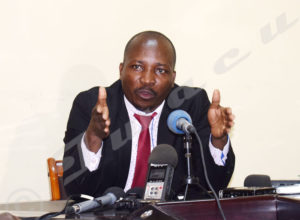Following the correspondence addressed to the ministries of Education and Labor, the Office of the Second Deputy President urged them to identify civil servants who pursue or had completed the evening studies by 15 March.

Isidore Ntirampeba: “Evening studies will not be suspended but improved”
Isidore Ntirampeba, Spokesperson for the Second Deputy President’s Office says the government wants to collect all information about the evening studies to improve the programs. “Evening classes will not be suspended despite some challenges,” he says.
For him, a survey will be conducted to know when the students attend those classes. “If they attend them during working hours, surely, measures will be imposed because there is an impact on the labor performance,” says Ntirampeba.
He also says a commission will be set up to identify all irregularities observed in evening classes.
“if it is so, civil servants would be favoring studies over work,” he says. He, however, says an evening course degree will not be used to claim some opportunities at work. “If it is not the employer who has sent the civil servant to study, the latter will get nothing,” he says. Ntirampeba mentions that the degree may be used to apply for other opportunities elsewhere and the evening classes will continue as usual.
The spokesperson for the Office of the Second Deputy President says the identification will allow the government to exactly know the background of its civil servants so that it establishes regulations for the programs.
In the correspondence addressed to two ministers on 28 February, Déo Mpfubusa, Chief of Staff in the Office of the Second Deputy President said the evening studies are not regular. He urged them to identify all civil servants who had pursued those studies while they were supposed to be at work.



















 IWACU Open Data
IWACU Open Data

